Contents
Guide
Andrea Raynor
Reflections of Grace
Finding Hope at Ground Zero
In memory and honor of the Foley brothers,
Tommy and Danny
FDNY Rescue Company 3
Heroes of 9/11
INTRODUCTION GROUND ZERO TWENTY YEARS LATER
T HE DUST HAS LONG cleared and any evidence of destruction has been swept away. A new tower rises like a defiant phoenix brushing the sky, yet something remains. Echoes. Echoes of what was.
Today this sacred ground shimmers with defiant rebirth. Once cradling the World Trade Center, the Twin Towers, and (sadly) Ground Zero, the site has reconfigured and risen again as One World Trade Center (the Freedom Tower) and the 9/11 Memorial and Museum. The breeze now carries, not the ashes of destruction or the stench of decay, but rather the fine mist of the reflecting pools. Listen, and you may hear the distant music of laughter, of casual conversations, of the bustle of meetings, and Ill-be-home-for-dinners. These echoes of life do not include being afraid to go to work or board an airplane. They are part of what was, namely life before September 11, 2001, and they remain a part of us. Those old enough to remember carry them in our cell memory.
In the immediate aftermath of the attack on the World Trade Center, I felt a strong sense of calling to volunteer at Ground Zero. I had been working as a hospice chaplain for several years and was well acquainted with death. What became imminently clear, however, is that nothing could have prepared me (perhaps any of us) for this task. If preparation was not a prerequisite for service, a leap of faith and a deep breath for courage certainly were. Those with whom I walked and servedfirefighters, police, EMTs, volunteers, construction workers, food servers, mental health professionals, and fellow chaplainsembodied that courage and more. Some were driven by faithful friendship to the fallen or by steadfast promises made to their families. Some felt compelled to serve because they loved their city, a city groaning and in tatters. Some were following the call of the Divine. And others showed up simply because they knew they had the strength to do so.
Working at Ground Zero meant shouldering the responsibility of standing in for a wounded and grieving nationfor families desperate to dig barehanded into the rubble in search of their loved ones, for those crying out to a God who might dare explain why, for children missing their parents, for the unborn who would never know their fathers, and for the dead waiting to be found. Because I was there as a chaplain, I also felt a sacred duty to comfort and to pray for those who worked without ceasing on that shifting, sometimes perilous, always painful site. I committed to memory the tender moments that passed between strangers and gently carried in my heart the people whose bodies I blessed at the morgue. I wanted to reassure myself (and others) that the Divine was alive and ever present at Ground Zero, despite the smoldering mountain of evidence to the contrary.
Much was shattered on September 11, to be sure, but some things were not completely destroyed. They could not be destroyed. Goodness. Hope. Faith in the future. Reverence for life. Love. These virtues survived against all odds, and they continue to guide us toward deeper healing. The scars of 9/11 are a reminder of everything we lostcherished loved ones, the safety we took for granted, dreams and images free of burning towers and people fallingbut they also bear witness to our ability to survive and to face the unthinkable. Our spiritual and emotional scars point to the resilience of the human spirit and to the strength of living in community. They mark where we were wounded, yes, but also how we managed to stitch ourselves together. They are evidence of strength as well as pain.
What happened in the aftermath of the attacks on that September day was an extraordinary outpouring of compassion, empathy, and support. And for a few shining moments, we were united in our common humanity rather than clawing at each others throats because of our differences. At Ground Zero, the response to the devastation was not a clenched fist. It was an outstretched hand. It was not revenge; it was shared heartbreak. Maybe those same strong hands formed their fists later. Im not saying they didnt. But for a time, they were open and ready to help.
The profound determination and spiritual stamina of those I met at Ground Zero will remain etched on my heart. And surrounding all of us, inspiring all of us, compelling all of us was the silent presence of each person waiting to be found. The awareness of their presence inspired a reverence that is difficult to describe. It gave us strength and kept us moving. The living kept watch over the dead, while the dead kept company with the living. It was an unspoken agreement, one that required extraordinary patience and care. Sorrow permeated the air, but it was not oppressive. It was infused with love and love made it light. Because of this, with every shift and every pause to lend an ear, I found more than sorrow: I found hope.
At first the hope was, of course, to find survivors. Hope against hope. Even when it became clear that no one would be pulled alive from the rubble, the hope sustaining and energizing Ground Zero was not dashed. Not completely. Instead, it absorbed the blow, wobbled, and changed forms. It became focused on finding and reclaiming the lost. Each time a body (or body part) was recovered, hope beat its fragile wings. Initially, our hope was simply to help. After a while, we hoped to keep our spirits alive, to retain our faith in humanity, to not shut down. Some hoped their marriages would survive or their health would hold out. Others hoped to retire when the work was done. The unspoken hope of some was that they, too, would be remembered if the roles were ever reversed. Like countless others, I carried ashes home on my shoes and in my hair. I carried toxins in my bodybut hope carried me.
In hope, we gathered the shattered pieces of those who died. We gathered ourselves. With these pieces, we created a delicate stained-glass window through which the light could shine. We tried to mend the broken places with love, the cracks with gold. This helped us remember the presence of beauty in the midst of the destruction. Holding on to the hope that life mattered, that what we were doing mattered, strengthened our resolve.
Through the years, whenever I have spoken about my service as a chaplain to the morgue at Ground Zero, many have been surprised (and heartened) to learn that every part of every person received a blessing. It is a tender and sacred part of the story of 9/11. As more years passed, I feared this chapter would be lost unless shared once more.
Here you will find echoes of life at Ground Zero, stories of everyday people who found themselves called to face the unthinkable in that particular moment in time. They climbed the pile, they descended into the pit, they searched the rubble; they refused to give up. Some later succumbed to illnesses related to their service. Most still bear the scars. These are but a thimbleful of the stories and people of Ground Zero. I invite you to walk with them, and with me, as we remember.

1


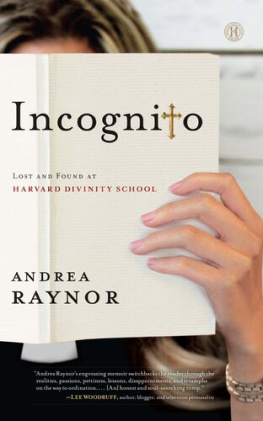
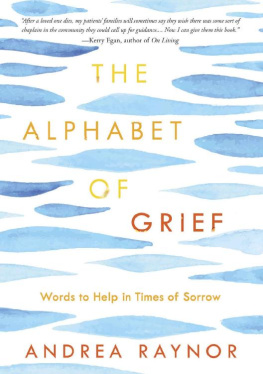
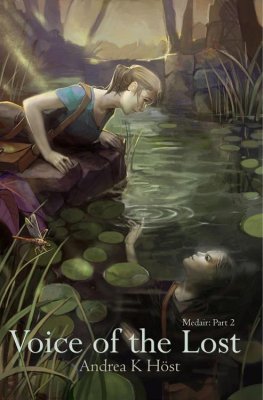
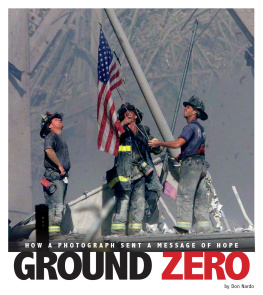
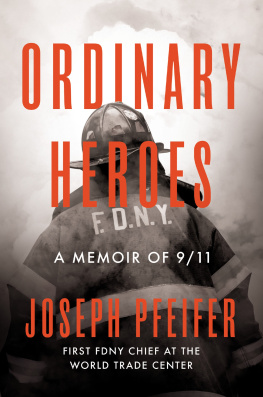
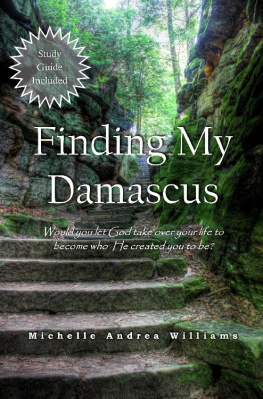
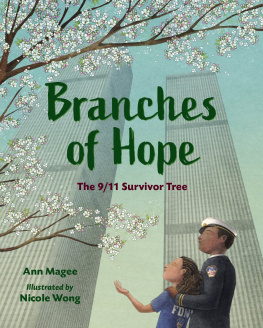
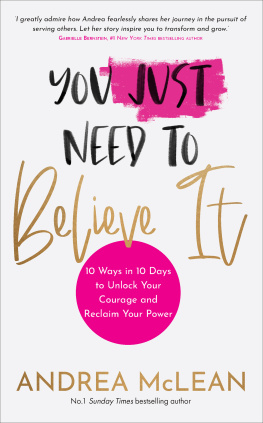
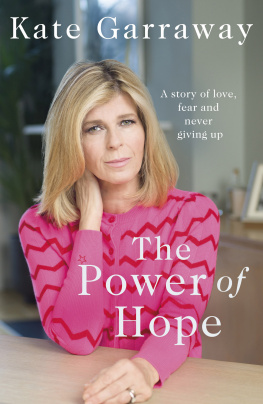
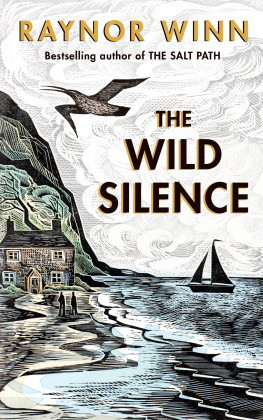
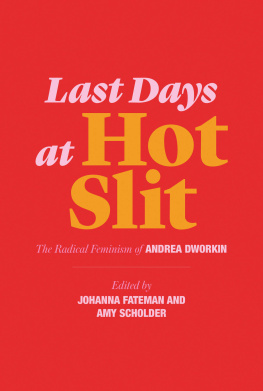

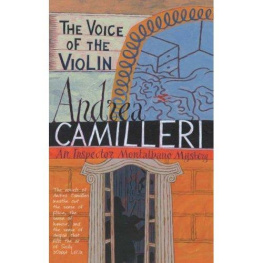
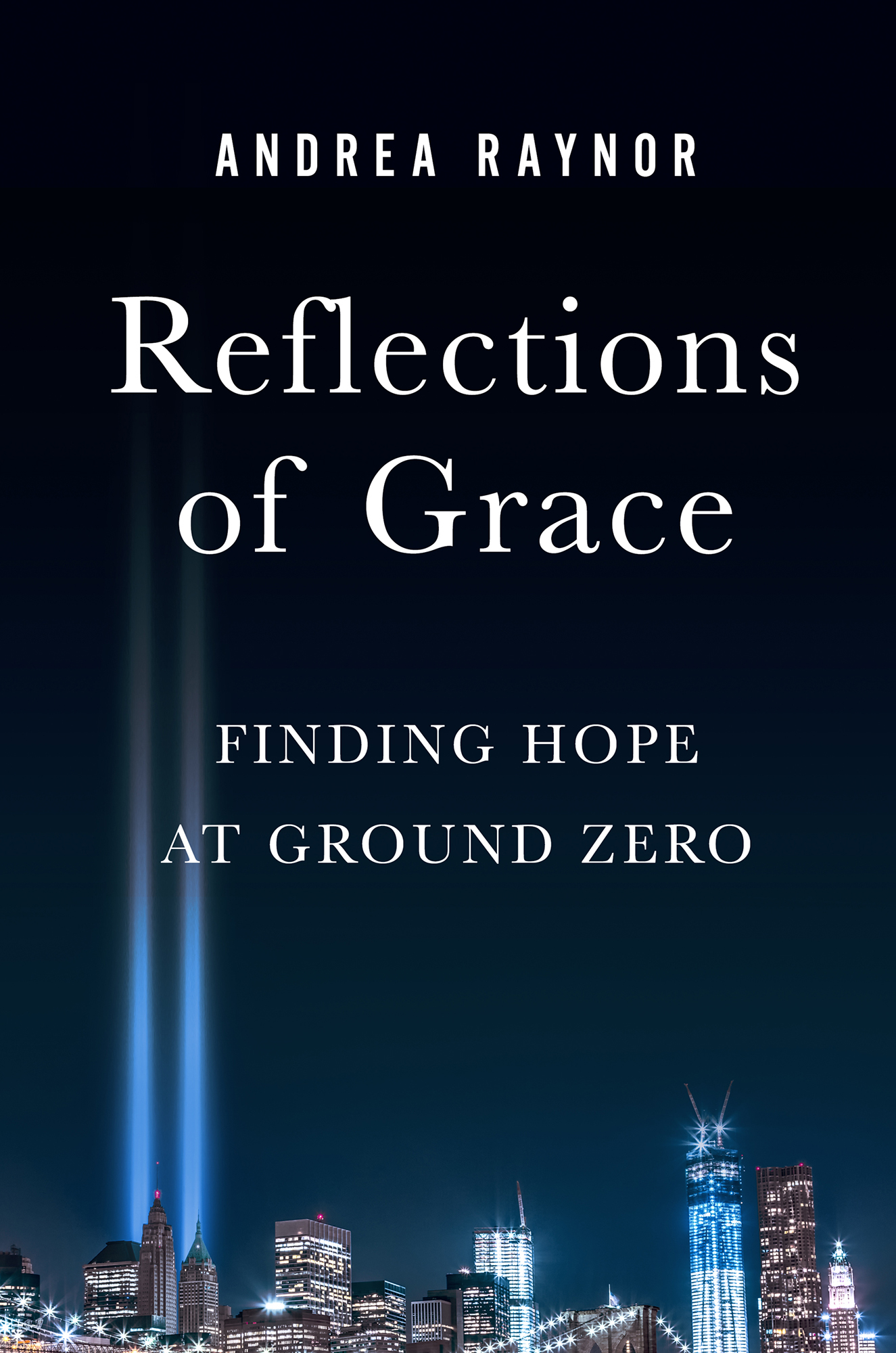

 1
1